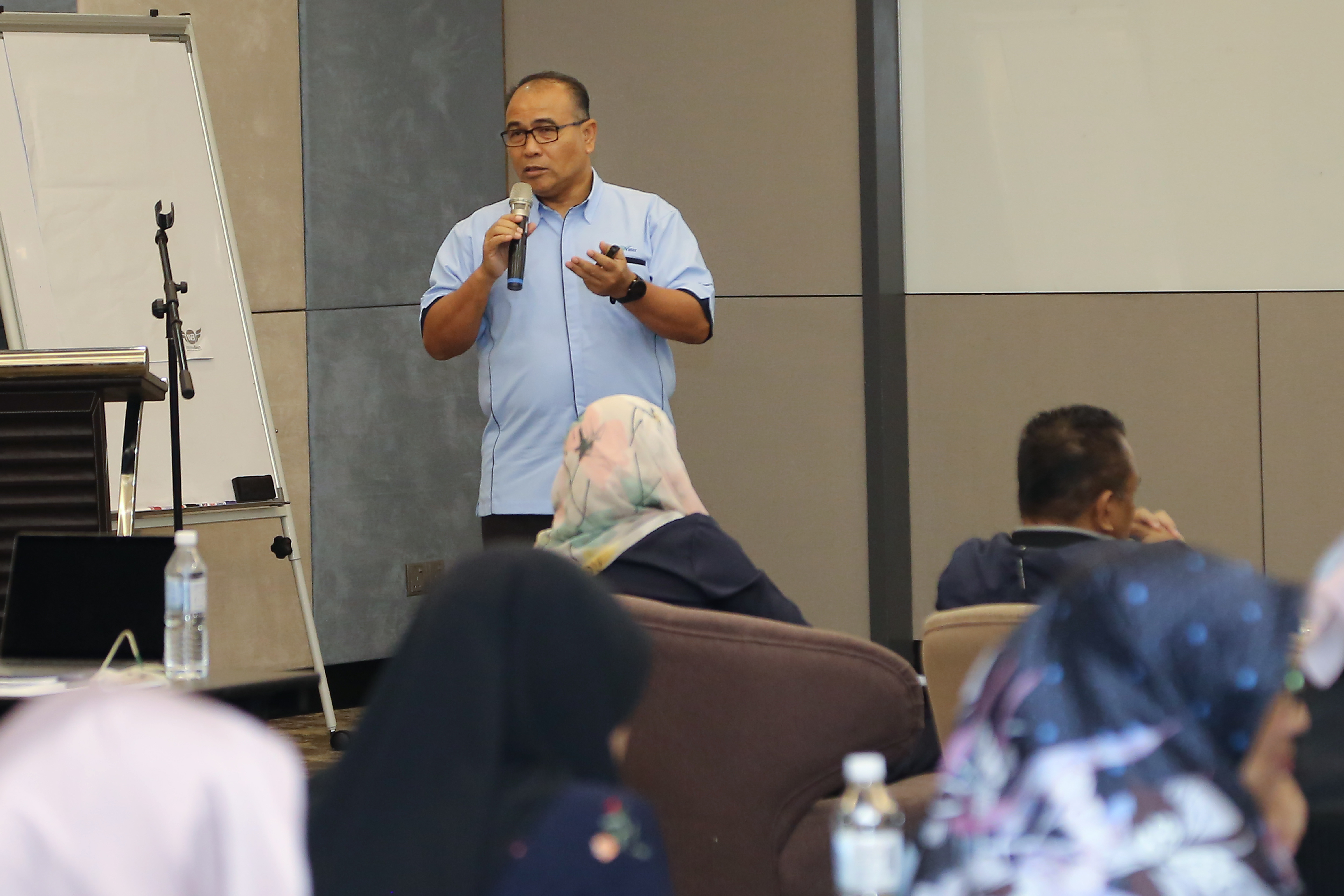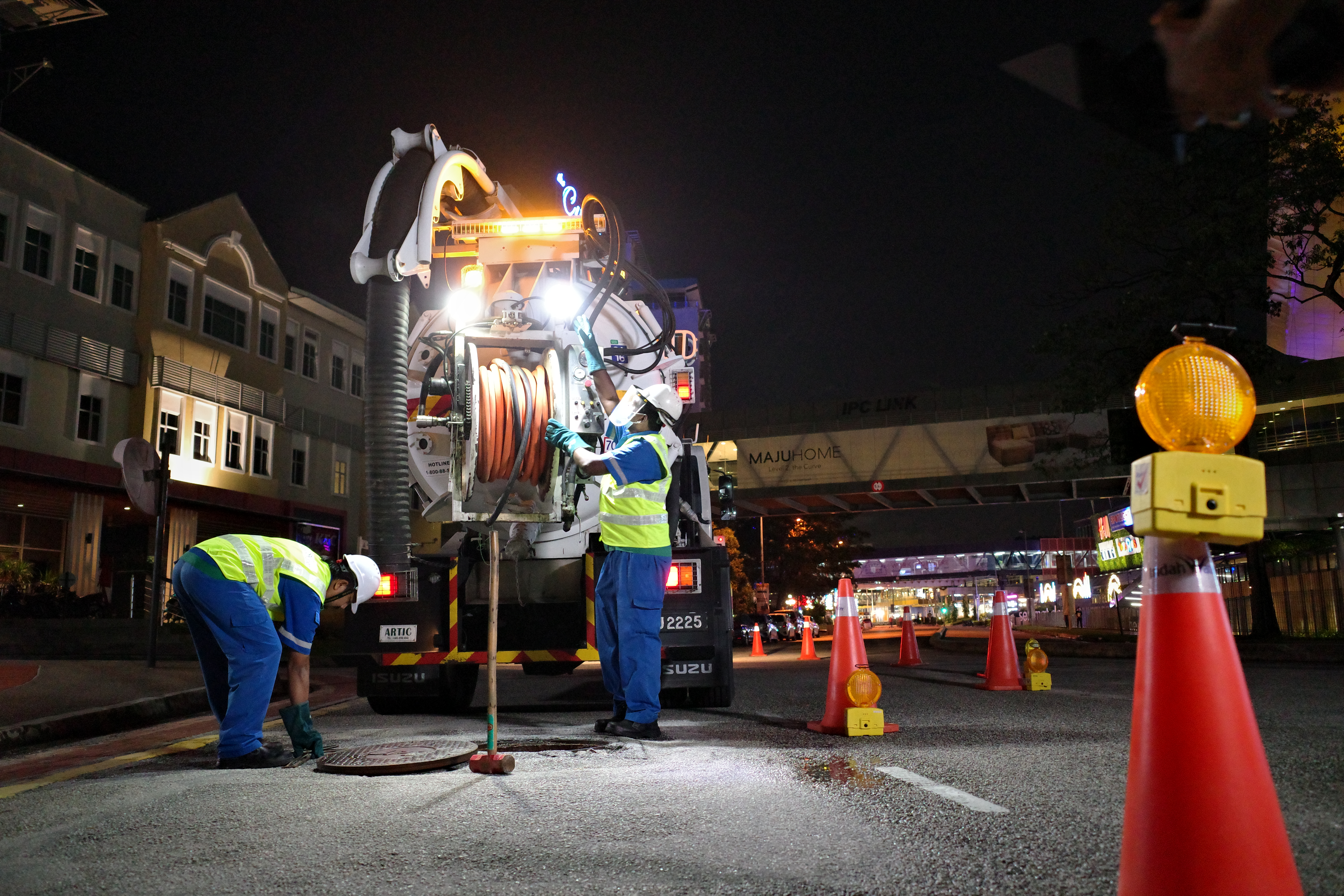Millions of people flush their toilets multiple times a day across Malaysia. Everything from poo, pee, toilet paper and even materials that are not supposed to be there, go to the sewage treatment plants or septic tanks, creating millions of litres of wastewater every day.
Apart from what you flush down your toilet or rinse down the drain, wastewater may come from stormwater runoff, agricultural and industrial sources.
A complex network of sewage tunnels
There are two primary types of sewerage systems in Malaysia: the connected sewerage system being the most common one, and individual septic tanks (IST) or communal septic tanks (CST) being the traditional sewerage systems.
Given the ever-growing demand for water, be it for industrial, commercial or home use, sustainable management of wastewater and water resources is a top priority.
Tasked with maintaining a modern and efficient sewerage system for the nation, the national sewerage company Indah Water Konsortium (IWK) Sdn Bhd has been working tirelessly since 1994 to protect the environment and public health.

According to IWK’s Head of Operations and Maintenance, Ir. Hussain Omar, this deluge of wastewater travels through some 22,000 kilometres of sewer pipes throughout Peninsular Malaysia and Labuan, covering 8,874 Sewage Treatment Plants (STPs) and Network Pump Stations (NPSs).
The risks and challenges in sewage treatment
However, the maintenance work is fundamentally complex. With an extensive and intricate network of sewerage infrastructure that goes underground, the challenges are simply beyond our comprehension.

First of all, it can be dangerous and hazardous. To ensure we live comfortably round the clock, we owe our gratitude to the unsung heroes behind the scenes who take on the 3D (Dirty, Dangerous and Difficult) tasks diligently.
Dealing with dirty substances is already a big turn-off for many. Obviously, working in environments where harmful materials, machinery, chemicals and confined spaces come together – can really pose significant threats.
Navigating through complex sewerage networks with intricate machinery around, the risks of getting injured and encountering fatal accidents are real.
Put simply, IWK's 3D frontliners are exposed to increased risk of occupational hazards, due to the very nature of their work environments.
Apart from putting wastewater maintenance for public health in the first place, the company is committed towards minimising accidents and work-related illnesses. IWK adopts the ISO 45001:2018 standards as part of its Health and Safety Management System (HSMS) to ensure employees’ safety and health are protected.
Increased pollution amid industrialisation and urbanisation
Ir. Hussain said, not only IWK is facing the pressure of accelerating industrialisation and urbanisation, modernisation also leads to increased pollution, which impacts the wellbeing of the environment and of course, presents substantial challenges to wastewater management.
Bear in mind, maintaining the functionality of Sewage Treatment Plants (STPs) and Network Pump Stations (NPSs) is not merely a responsibility towards efficient wastewater management, but also a critical step in protecting the environment and public health.
Public health and environment are key concerns
Standing in its way is the lack of public consciousness on environment protection. While IWK takes on the responsibility of maintaining and managing sewerage infrastructure, it calls for a shared responsibility among members of the public to ensure a clean and sustainable environment.
The good news is that you can certainly make a difference!
Stop pollution
Ir. Hussain explained, there are still many who throw rubbish like plastics, cigarettes or sanitary pads into the toilet bowl, which will end up in the sewage system. This will lead to blockages and operational issues within the sewerage system.
“Protecting the environment can be done in a very simple way – refrain from disposing of anything like plastics, chemicals and non-biodegradable materials into the sewer lines,” Ir Hussain added. This underscores a noble ambition that requires everyone to play their respective roles – at home, workplaces or anywhere.
Beside rubbish, oil and grease in sewer pipelines can pose a significant threat. These substances have the potential to cause harm to the overall functioning of the sewer system and disrupt treatment processes. Oil and grease will clog the sewer lines; causing the sewage to overflow onto the ground, or into buildings, waterways and rivers.
Reduce, reuse and recycle
Therefore, the 3R rule – reduce, reuse and recycle, is always an effective way of managing plastic waste.
It simply boils down to a matter of choice for a healthy planet. What may look like a simple, small step that starts with you, can really go a long way to educate a whole generation, and subsequently make the world a better place.
What is worth highlighting here is that toilets, sinks and drains are not the shortcuts for garbage disposal.
Think before you throw
Apart from plastics, things that should not end up in wastewater include pharmaceuticals, sanitary napkins, condoms, diapers, wet wipes, paper towels, cotton balls, and chunk wastes.
So, before you flush anything down the toilet or throw something into the drain, remember where it will end up and the extra work it requires if any of those wastes are not supposed to be there.
Practise responsible waste disposal
Collectively, practising responsible waste disposal is key to achieving the common goal of environmental conservation. This simply means public participation at the individual level is necessary as it aligns with IWK's holistic approach to environmental stewardship.
Knowing that wastewater cannot be discharged without treatment, a properly maintained sewerage system is one of the most important assets that safeguards public health and environmental sustainability.
Be environmentally conscious all the time
Although we can never stop industrialisation and urbanisation, we can always take the initiative to do the earth a favour by minimising pollution, all the time and everywhere.
Doing so will definitely help IWK do the job more efficiently as wastewater treatment is crucial to environmental sustainability and public health.
Learn more about IWK services at: https://www.iwk.com.my/

